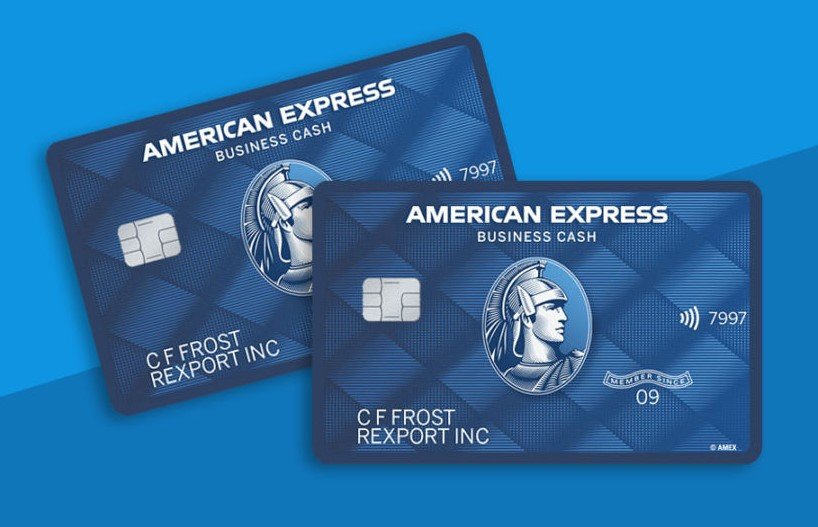Before plunging into the world of startup business credit cards, it is crucial to check both your personal and business credit scores to ensure eligibility and favorable terms. As you commence on this financial journey, consider factors such as business expenditure, annual fees, rewards and perks, and payment flexibility to find the card that best suits your startup’s needs. By understanding these key elements and making informed decisions, you can select the perfect card to support your business growth.
Key Takeaways:
- Assess Your Needs: Understand your startup’s spending habits before choosing a business credit card.
- Consider Fees and Rewards: Evaluate annual fees, rewards, and perks to determine if they align with your business expenses.
- Ensure Financial Flexibility: Look for cards with flexible payment options and credit limits that meet your operational needs.
- Build Business Credit Responsibly: Use the card responsibly to help establish a positive credit history for your startup.
- Research Card Issuer: Research the reputation of the card issuer to ensure they cater well to small businesses and startups.
Understanding Startup Business Credit Cards
Know the Basics
For a startup looking to take advantage of the financial benefits of a business credit card, it’s important to understand the basics of what these cards offer. Consider factors such as credit score requirements, annual fees, rewards and perks, and expense tracking tools to match with your business’s spending habits. Look for cards that provide a suitable credit limit and flexible payment options to support your startup’s operational needs.
Check Your Credit Scores
Even before you start exploring business credit card options, it’s important to check both your personal and business credit scores. Your credit scores can impact your eligibility for a card and the terms you may be offered.
Understanding your credit scores can guide you in choosing the right business credit card that aligns with your financial situation and goals. By checking and monitoring your credit scores, you can work towards improving them over time, which can benefit your startup’s ability to access credit options in the future.

Factors to Consider
Some startups overlook the importance of assessing their business expenditure when choosing a business credit card. It is crucial to match your startup’s spending habits with the card’s rewards structure to maximize benefits. Ensure that the card offers rewards and perks aligned with your business expenses to make the most out of every purchase.
Assessing Business Expenditure
Card issuers provide various rewards and perks, such as cashback, travel points, or discounts on specific categories, catering to different spending patterns. By understanding your startup’s expenditure, you can select a card that complements your business spending, ultimately saving you money and enhancing your financial management.
Considering Annual Fees
Any annual fee associated with a business credit card should be weighed against the benefits it offers. While some cards may have a higher annual fee, they could provide substantial rewards and perks that outweigh the cost. Consider your business’s budget and spending habits to determine if paying an annual fee makes sense in the long run.
Business credit cards come with a range of rewards and perks tailored to different business needs. One key factor to consider is evaluating rewards and perks based on your startup’s expenses and preferences. Look for cards that offer rewards in categories where you frequently spend money, such as office supplies, travel, or telecommunications.
Evaluating Rewards and Perks
One of the benefits of business credit cards is the opportunity to earn rewards and perks on your everyday business expenses. By carefully evaluating the rewards and perks offered by different cards, you can select the one that aligns best with your startup’s spending habits and goals, providing you with additional value for your purchases.
Exploring Introductory Offers
Offers such as introductory APRs or sign-up bonuses can provide an immediate financial boost to your startup. By taking advantage of these introductory offers, you can save on interest charges or earn rewards early on, benefiting your business from the start.
Managing Credit Limits
Assuming the card provides a credit limit that meets your startup’s operational needs, you can effectively manage your business expenses and cash flow. Ensure that the credit limit is sufficient for your regular spending while also considering any potential increase in expenses as your business grows.
Adding Additional Cardholders
To streamline expense management and provide flexibility in spending, consider adding employees as additional cardholders. This allows you to track individual spending, set limits, and consolidate all business expenses on one account, simplifying your financial record-keeping.
Utilizing Expense Tracking Tools
Now that many business credit cards offer robust expense tracking tools, you can easily monitor and categorize your company’s expenditures. These tools not only simplify accounting and bookkeeping but also help you track expenses more efficiently, making financial management easier for your startup.
Reviewing Customer Service
Additional to the above factors, assessing the level of customer support provided by the card issuer is crucial for startups. Responsive customer service can be beneficial when facing any issues or requiring assistance with account management, ensuring smooth business operations.
Understanding Payment Flexibility
Now, let’s talk about the importance of payment flexibility when choosing a business credit card for your startup. When identifying a card, you want to ensure that it offers flexible payment options to help you manage your cash flow effectively. This feature can be crucial for startups, as it allows you to adapt your payment schedule to align with your business’s revenue cycles.
Comparing Interest Rates
To make an informed decision about which business credit card to choose, it’s vital to compare the interest rates offered by different cards. The interest rates can impact your costs significantly if you carry a balance on your card. In the context of your startup, where every dollar counts, opting for a card with lower interest rates can help you save money in the long run.
| Low Interest Rate | High Interest Rate |
| A card with a low-interest rate can save you money on finance charges. | High-interest rates can lead to increased costs if you carry a balance on the card. |
| Helps you manage your cash flow better by reducing interest payments. | Makes it more challenging to pay off the balance, leading to increased debt. |
Making the Most of Your Startup Business Credit Card
Building Business Credit
Unlike personal credit cards, business credit cards can help establish and build your startup’s credit history. By using the card responsibly, making timely payments, and keeping your credit utilization low, you can improve your business credit score over time. This can be crucial for securing funding or favorable terms in the future.
Prioritizing Security Features
Security features are crucial when choosing a business credit card to protect your startup from fraud and theft. Look for cards that offer encryption, fraud monitoring, and zero liability protection. These features can give you peace of mind while conducting transactions and handling sensitive financial information.
Another important aspect to consider when prioritizing security features is the ability to set spending limits for individual employees. This helps prevent unauthorized transactions and ensures that your startup’s finances are well-protected.
Ensuring Global Acceptance
Your startup may have international transactions or travel needs, so it’s important to choose a business credit card that is widely accepted globally. This can save you the hassle of dealing with payment issues when conducting business abroad. Look for cards that offer widespread acceptance and minimal foreign transaction fees to streamline your operations.
Leveraging Financial Cushion
Your business credit card’s line of credit can serve as a valuable financial cushion during lean periods or unforeseen expenses. This can provide your startup with the flexibility and financial support needed to navigate through challenging times without disrupting your operations. Be sure to use this feature wisely to avoid accumulating unnecessary debt.
Final Words
Hence, when selecting a startup business credit card, it is vital to consider various factors to ensure you choose the perfect card for your business needs. By understanding the basics of what a business credit card offers and assessing your startup’s spending habits, you can match the card’s rewards structure to maximize benefits. Checking your credit scores, evaluating annual fees, exploring rewards and perks, and taking advantage of introductory offers are all crucial steps in finding the right card for your business. Considering payment flexibility, interest rates, security features, and the card issuer’s reputation can help you make an informed decision that supports your startup’s financial growth.
The goal is to choose a card that not only meets your operational needs but also helps build your business credit history. With the right startup business credit card in hand, you can simplify expense tracking, manage cash flow effectively, and access a financial cushion when needed. By being diligent in your research and considering the factors mentioned above, you can select a card that aligns with your business goals and sets your startup up for success in the long run.
FAQ
Q: What should I consider when choosing a startup business credit card?
A: When choosing a startup business credit card, you should consider factors such as your credit score, business expenditure, annual fees, rewards and perks, and payment flexibility.
Q: Why is it important to check both personal and business credit scores before applying for a business credit card?
A: Checking both personal and business credit scores is important because they can affect your eligibility for a business credit card and the terms you are offered.
Q: How can I assess my startup’s spending habits when choosing a business credit card?
A: You can assess your startup’s spending habits by matching them with the card’s rewards structure to maximize benefits based on your expenses.
Q: Are there any special offers or bonuses I should look out for when choosing a startup business credit card?
A: Yes, you should consider taking advantage of introductory APRs or sign-up bonuses offered by some business credit cards if they benefit your startup.
Q: Why is it important to choose a business credit card with robust expense tracking tools?
A: Choosing a card with expense tracking tools can simplify bookkeeping for your startup and help you keep better track of your business expenses.
















